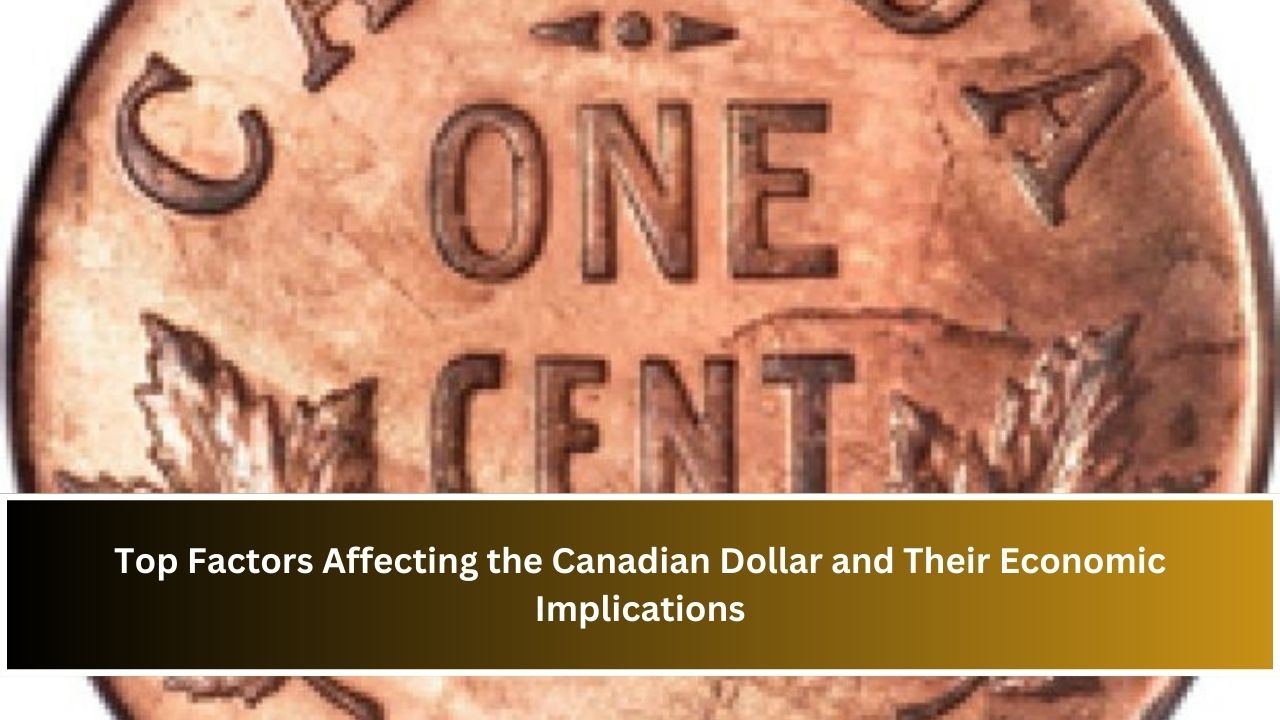The Canadian dollar (CAD) plays a crucial role in shaping Canada’s economy and its interactions with the global market. Its value is influenced by various factors, from economic indicators to trade relations and geopolitical events. Understanding these factors helps individuals, businesses, and governments make informed decisions about investments and financial planning.
Canada’s trade relations with countries like the United States, China, and Europe influence the Canadian dollar. Strong trade partnerships lead to higher demand for the dollar, boosting its value. When global demand for Canadian exports increases, so does the currency’s strength, making it easier for Canada to negotiate trade deals and economic policies.
Factors Affecting the Canadian Dollar
1. Commodity Prices
Canada is rich in natural resources, including oil, natural gas, and minerals. The price of these commodities has a significant impact on the value of the Canadian dollar. When global demand for resources rises, Canada benefits, and so does its currency. Conversely, when prices drop, the Canadian dollar may weaken. This is because exports make up a large portion of Canada’s economy, and fluctuations in resource prices directly affect the value of the dollar.
2. Interest Rates and Monetary Policy
The Bank of Canada plays a key role in setting interest rates, which directly impacts the Canadian dollar. Higher interest rates attract foreign investment, increasing the demand for the Canadian dollar. This strengthens its value in global markets. On the other hand, lower interest rates can lead to depreciation, affecting trade balances and economic growth.
3. Trade Relations and Global Demand
Canada’s trade relations with countries like the United States, China, and Europe influence the Canadian dollar. Strong trade partnerships lead to higher demand for the dollar, boosting its value. When global demand for Canadian exports increases, so does the currency’s strength, making it easier for Canada to negotiate trade deals and economic policies.
4. Political Stability and Geopolitical Events
Political stability plays a significant role in determining the value of the Canadian dollar. Uncertainty or geopolitical events can lead to fluctuations in the currency. For example, tensions or trade disputes can weaken the dollar, as investors look for safer, more stable currencies during uncertain times.
Table: Key Factors Impacting the Canadian Dollar
| Factor | Impact on Canadian Dollar | Economic Implications |
|---|---|---|
| Commodity Prices | Stronger with rising prices | Boosts exports and trade surpluses |
| Interest Rates | Higher rates strengthen | Attracts foreign investment, boosts demand |
| Trade Relations | Strong partnerships increase | Strengthens currency and economic stability |
| Political Stability | Stable political environment | Reduces uncertainty, supports economic growth |
Conclusion
The Canadian dollar is influenced by various factors, including commodity prices, interest rates, trade relations, and political stability. These elements shape Canada’s economic landscape and impact its position in global markets. By understanding these drivers, individuals and businesses can better navigate the complexities of currency fluctuations and economic trends.
Canada is rich in natural resources, including oil, natural gas, and minerals. The price of these commodities has a significant impact on the value of the Canadian dollar. When global demand for resources rises, Canada benefits, and so does its currency. Conversely, when prices drop, the Canadian dollar may weaken. This is because exports make up a large portion of Canada’s economy, and fluctuations in resource prices directly affect the value of the dollar.
FAQ’s
How do commodity prices affect the Canadian dollar?
Commodity prices, such as oil and minerals, directly impact the Canadian dollar. Higher prices strengthen the currency, while lower prices weaken it.
What role do interest rates play in shaping the Canadian dollar?
Higher interest rates attract foreign investments, boosting the Canadian dollar’s value. Lower rates can lead to depreciation.
Why are trade relations important for the Canadian dollar?
Strong trade partnerships with countries like the U.S. and China help strengthen the Canadian dollar, making trade more efficient and beneficial.
How does political stability impact the Canadian dollar?
Stable political environments reduce uncertainty, supporting a stronger Canadian dollar. Geopolitical events may lead to currency fluctuations.

